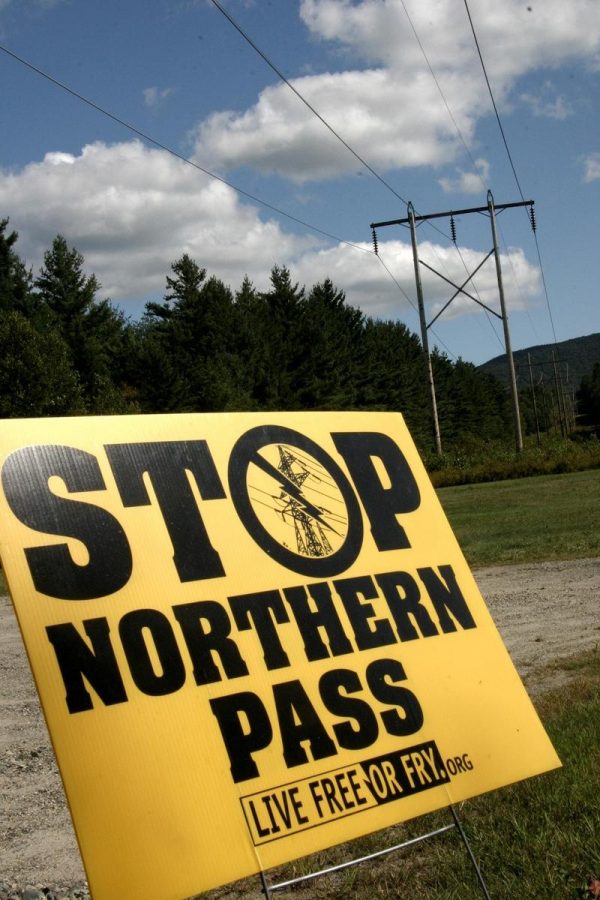Controversial Northern Pass project struck down
February 18, 2018
On February 1 the New Hampshire Site Evaluation Committee (SEC) voted unanimously (7-0) to deny a permit to Eversource to go ahead with their extremely controversial Northern Pass project. The SEC stated that they did not feel Eversource had sufficiently shown that the power line would not inversely affect the development of the region.
The Northern Pass is a proposed project to bring hydroelectric power from Quebec to New England. The project is designed as a 192-mile transmission line that will bring over 1,000 megawatts of hydropower from Hydro-Quebec’s hydroelectric plants in Canada to the New England power grid.
This project was first proposed in 2011 and has faced strong opposition by many New Hampshire residents. The main protest comes from North Country residents as well as environmental groups.
The key concern is the loss of scenery that the project’s construction would require. There are also the environmental and ecological concerns regarding the amount of forest that will have to be cleared in order for the power lines to be installed. This is quite interesting, for not often do clean energy and environmental concerns contradict one another. The Northern Pass issue is split between conservationists and those who petition for clean energy.
The Northern Pass will use 160 miles of existing corridors where powerlines currently stand. 32 additional miles of corridor will be constructed. To address concerns regarding the project impact on New Hampshire scenery, the route of the Northern Pass was altered to avoid key areas such as White Mountain National Forest and the Appalachian Trail. The new route calls for 60 miles of powerlines to be placed underground. However, in order to bury lines underground digging will still have to occur. That being said, nowhere near the same amount of land will need to be cleared as with an aboveground corridor.
Yet for all the negativity regarding the Northern Pass, the project would greatly benefit New Hampshire as well as all of New England. Construction of the project would create roughly 2,600 jobs. New Hampshire consumers would save an estimated $62 million in annual energy costs and there would be roughly $30 million annual state and local tax revenues. To offset the environmental damage, 5,000 acres of land would be dedicated for preservation and recreation activities. A $200 million Forward NH Fund would also be sponsored to provide for economic development programs, clean energy innovation, as well as programs to grow jobs and tourism in the state.
The Northern Pass not only provides electricity, it provides clean and green energy. The project would decrease carbon emissions by an estimated 3.2 million tons of carbon dioxide a year. This would be a great step towards fossil fuel independence, however, is it worth it? With all the land disturbed and the loss of scenery, it would make more sense to install a series of windmills across the state if clean energy is the goal. This would greatly reduce the amount of land disturbed.
Regardless of stance on the matter, the Northern Pass has sparked much controversy since 2011. For now, the project remains at a standstill as the SEC has yet to issue a permit.
Eversource responded after the SEC vote that they were “shocked and outraged”. The company plans on seeking reconsideration from the SEC and will review all options to move the clean energy project forward. Eversource has 30 days since the SEC vote to request a re-hearing. If the SEC declines to re-hear, Eversource can appeal their case to the New Hampshire Supreme Court. The controversy over the Northern Pass is by no means finished. More news is expected to be heard in the weeks to come.



